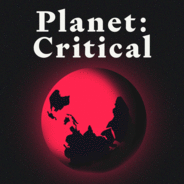Our borders are changing.Russia wants Ukraine, China wants Taiwan, Israel wants Palestine, and Trump wants Greenland. We are in the beginning of an age of territorial expansion, as nations seek to shore up more resources, wealth and power by acquiring land. I’m joined by Michael Albertus, a Professor in Political Science at the University of Chicago, to discuss the history of land as an asset, and what a return to colonial and imperial policies of invasion will look like over the coming years.We also discuss local and national resistance around the world, delving into the universality of our desire to protect what we call home from extraction and exploitation. Mike reveals the land restitution policies in South Africa and I discuss my recent work with communities in Colombia who are holding off multinational mining companies from tearing up their land. To learn more, get a copy of Mike’s latest book, Land Power: Who Has It, Who Doesn’t, and How That Determines the Fate of Societies.Planet: Critical is 100% independent and community-powered. If you value it, and have the means, become a paid subscriber today. This is a public episode. If you would like to discuss this with other subscribers or get access to bonus episodes, visit planetcritical.substack.com

PolitikWirtschaftTalk
Planet: Critical Folgen
Planet: Critical is the podcast for a world in crisis. We face severe climate, energy, economic and political breakdown. Journalist Rachel Donald interviews those confronting the crisis, revealing what's really going on—and what needs to be done. planetcritical.substack.com
Folgen von Planet: Critical
243 Folgen
-
Folge vom 06.03.2025The Age of Territorial Expansion | Michael Albertus
-
Folge vom 27.02.2025Animal Agriculture Exceptionalism | Kenny TorrellaBig Oil has a Big Brother — animal agriculture.A handful of multinational companies are driving environmental degradation and cruelty around the world to feed their pockets rather than the hungry’s bellies. Welcome to the world of animal agriculture, an industry which gets away with practices which would be considered illegal in any other sector. Vox reporter Kenny Torrella lays out how this destructive industry has inserted itself into policy at every level of government, ensuring policy-makers ignore the fact the sector is the number one driver of air and water pollution, fresh water use, and habitable land exploitation. While some Nordic governments are trying to push back, as Kenny explains, the EU bloc as a whole is deliberately undermining the plant-based food industry while the meat-heavy American diet remains the aspiration for “developing” economies around the world. This episode is both devastating and revealing — but Kenny ends on a note of hope, explaining how, because this industry functions in the shadows, the movement against it politically homeless, meaning it could generate bipartisan support for animal-human-planetary health.Planet: Critical is 100% independent and community-powered. If you value it, and have the means, become a paid subscriber today. This is a public episode. If you would like to discuss this with other subscribers or get access to bonus episodes, visit planetcritical.substack.com
-
Folge vom 20.02.2025How to Cool the Planet | Sailesh RaoWhat is one thing we could all do tomorrow? Switch to a planet-based diet.Sailesh Rao, Executive Director of Climate Healers, joins me to explain how emissions from animal agriculture are not being counted properly in the IPCC report, claiming that animal agriculture is, when analysed properly, responsible for 87% of climate change. Sailesh offers his hypothesis as to why animal agriculture isn’t taking as much heat as the fossil fuel industry, and of course I challenge his position which is contrary to most climate science which points to energy as the leading cause of climate change. We go on to discuss strategies of non-violence, the problem of human supremacy, and how our relationship towards meat impacts our capacity to address the roots of the climate crisis: colonisation and domination.Planet: Critical is 100% independent and community-powered. If you value it, and have the means, become a paid subscriber today. This is a public episode. If you would like to discuss this with other subscribers or get access to bonus episodes, visit planetcritical.substack.com
-
Folge vom 13.02.2025The B******t Stinking Up Silicon Valley | Ed ZitronEd Zitron is one of Silicon Valley’s fiercest critics. Since A.I’s arrival, Ed has virulently exposed its singular lack of intelligence, its huge energy demands, and the dangerous way its hoovering up attention and capital on nothing more than the vague promises of a couple of zealots. He joins me to reveals the myths that abound in the Valley, and the reality that everyone has run out of ideas. He explains that Big Tech is no longer run by techologists but by “barely smart” capitalists who are desperately banking on A.I. to create a new hyper growth market to pull their flailing companies out of their slumps. He walks us through the “enshittification” of tech — why things are getting worse, who’s in charge, who’s pretending to have ideas, and how these powerful men build up their images as geniuses rather than grossly wealthy headless chickens.Sadly, this episode was recorded before Elon’s rapid takeover of the American government and China’s humble popping of the A.I bubble (proving Ed right). Get his take on DeepSeek on his Better Offline podcast, or read his lengthy investigation into Elon Musk on his newsletter. Planet: Critical is 100% independent and community-powered. If you value it, and have the means, become a paid subscriber today. This is a public episode. If you would like to discuss this with other subscribers or get access to bonus episodes, visit planetcritical.substack.com
